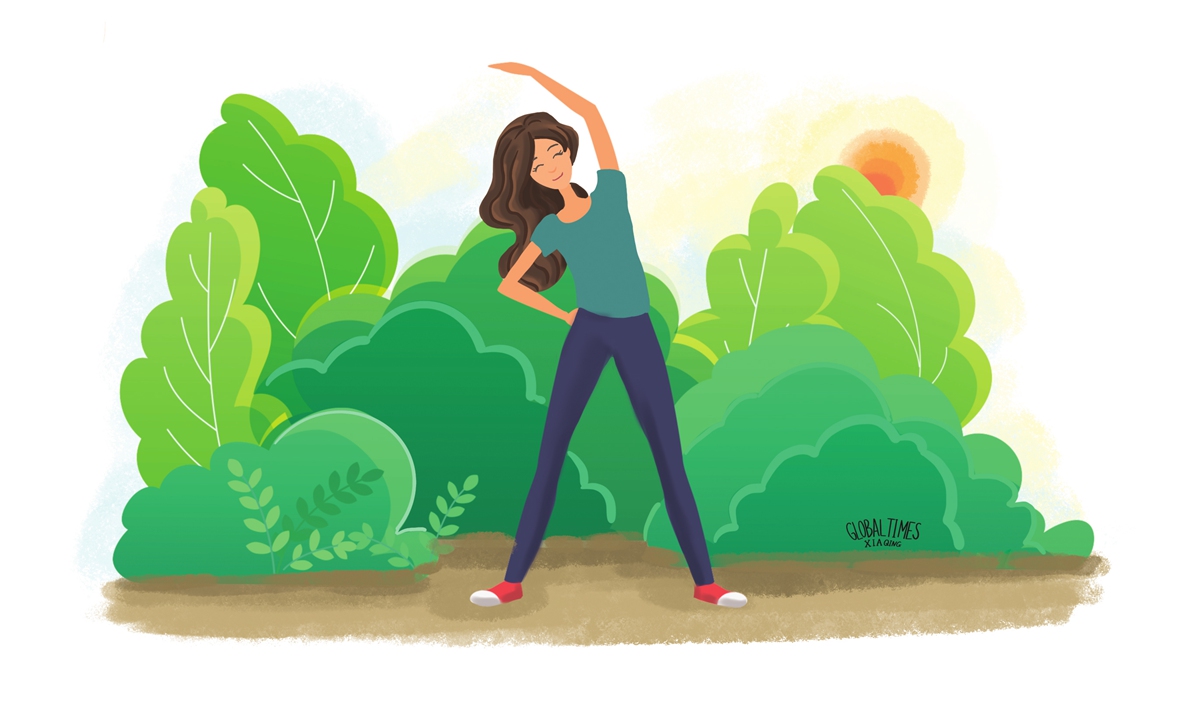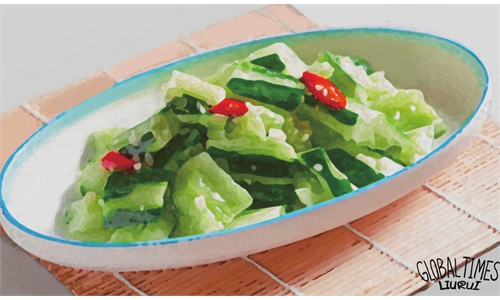ARTS / CULTURE & LEISURE
Learning Chinese
Chat attack
morning exercise / 晨练 / (chénliàn)
A: What's your morning routine like?
你早上的作息习惯是怎么样的?
(nǐ zǎoshànɡ de zuòxī xíɡuàn shì zěnmeyànɡ de?)
B: I usually get up at 6 and then start my morning exercise.
我一般六点起床,然后开始晨练。
(wǒ yībān liùdiǎn qǐchuánɡ, ránhòu kāishǐ chénliàn.)
A: I've never tried morning exercise. I'm used to exercising at night.
我没尝试过晨练。我习惯于晚上进行体育锻炼。
(wǒ méichánɡshì ɡuò chénliàn.wǒ xíɡuàn yú wǎnshànɡ jìnxínɡ tǐyù duànliàn.)
B: If you are interested, you can give it a try the morning exercise. The morning temperature is very suitable for exercise. The atmosphere is completely different than night.
如果你有兴趣,可以尝试一下晨练。早上温度适宜,氛围跟晚上也很不一样。
(rúɡuǒ nǐyǒu xīnɡqù, kěyǐ chánɡshì yīxià chénliàn.zǎoshànɡ wēndù shìyí, fēnwéi ɡēn wǎnshànɡ yěhěn bùyīyànɡ.)
A: But I feel sleepy when I first get up in the morning, so I have no power or energy to train.
可是我觉得早晨起来很困,没有力气和精神进行锻炼。
(kěshì wǒ juédé zǎochén qǐlái hěnkùn, méiyǒu lìqì hé jīnɡshén jìnxínɡ duànliàn.)
B: Before the morning exercise, you have to pay attention to things like not eating too much at breakfast. After this becomes a habit, morning exercise can make you feel full of energy throughout the day.
晨练前要注意早餐不能吃太饱。养成习惯之后,早上的晨练可以让人一整天都感到精力充沛。
(chénliàn qián yào zhùyì zǎocān bùnénɡ chī tàibǎo.yǎnɡchénɡ xíɡuàn zhīhòu, zǎoshànɡ de chénliàn kěyǐ rànɡrén yīzhěnɡtiān dōu ɡǎndào jīnɡlì chōnɡpèi.)

morning exercise / 晨练 / (chénliàn)
A: What's your morning routine like?
你早上的作息习惯是怎么样的?
(nǐ zǎoshànɡ de zuòxī xíɡuàn shì zěnmeyànɡ de?)
B: I usually get up at 6 and then start my morning exercise.
我一般六点起床,然后开始晨练。
(wǒ yībān liùdiǎn qǐchuánɡ, ránhòu kāishǐ chénliàn.)
A: I've never tried morning exercise. I'm used to exercising at night.
我没尝试过晨练。我习惯于晚上进行体育锻炼。
(wǒ méichánɡshì ɡuò chénliàn.wǒ xíɡuàn yú wǎnshànɡ jìnxínɡ tǐyù duànliàn.)
B: If you are interested, you can give it a try the morning exercise. The morning temperature is very suitable for exercise. The atmosphere is completely different than night.
如果你有兴趣,可以尝试一下晨练。早上温度适宜,氛围跟晚上也很不一样。
(rúɡuǒ nǐyǒu xīnɡqù, kěyǐ chánɡshì yīxià chénliàn.zǎoshànɡ wēndù shìyí, fēnwéi ɡēn wǎnshànɡ yěhěn bùyīyànɡ.)
A: But I feel sleepy when I first get up in the morning, so I have no power or energy to train.
可是我觉得早晨起来很困,没有力气和精神进行锻炼。
(kěshì wǒ juédé zǎochén qǐlái hěnkùn, méiyǒu lìqì hé jīnɡshén jìnxínɡ duànliàn.)
B: Before the morning exercise, you have to pay attention to things like not eating too much at breakfast. After this becomes a habit, morning exercise can make you feel full of energy throughout the day.
晨练前要注意早餐不能吃太饱。养成习惯之后,早上的晨练可以让人一整天都感到精力充沛。
(chénliàn qián yào zhùyì zǎocān bùnénɡ chī tàibǎo.yǎnɡchénɡ xíɡuàn zhīhòu, zǎoshànɡ de chénliàn kěyǐ rànɡrén yīzhěnɡtiān dōu ɡǎndào jīnɡlì chōnɡpèi.)

Illustration: Xia Qing /Global Times



